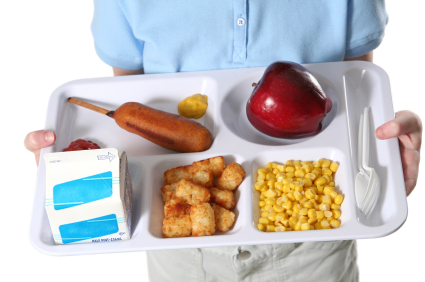By some sort of crazy coincidence, a reporter for the Washington Times was investigating Chartwells, the contracted food provider for D.C. Public Schools, at the same time that I was spending a week in a school kitchen discovering just how bad our school food is.
Times reporter Jeffrey Anderson, meanwhile, reveals in a report today that Chartwells in the past has continued to use the same foods that have been linked to disease outbreaks in different cities where they hold school contracts. The Times questions whether the food Chartwells is serving in D.C. actually complies with federal standards. It also rakes the food provider for failing to provide nutritional information for the food it serves, for defending the practice of serving desserts to children in Chicago and for serving “cheese nachos on a daily basis as a means of getting children to partake in school lunch options.”
The report also notes that Chartwells’ local partner here in the District, Thompson Hospitality, “one of the largest minority-owned food service contractors in the United States,” has been a contributor to the campaign chest of D.C. Mayor Adrian Fenty.
District schools hired Chartwells to provide food for the city’s 40,000 public school students after acclaimed and sometimes embattled administrator Michelle A. Rhee took over as chancellor in 2007 and opted to privatize the school lunch program. Her goal, according to the Times, “was to provide schoolchildren with tastier and healthier meals.”
“The mayor and I want to introduce students to a variety of foods to help train their palates to choose healthier foods for the rest of the lives,” the paper quotes Rhee as saying in a Febryary 2008 press conference.
That’s a far cry from the food I observed during the week I spent in the kitchen at my daughter’s elementary school, H.D. Cooke, here in the District. What I saw being fed to children on a daily basis was highly processed and adulterated foods manufactured in distant factories and shipped frozen to D.C. schools, where they could easily be re-heated and served on the steam table. Overcooked vegetables, as well as those served plain and raw, are rejected by students. Children are served Pop Tarts and Goldfish “Giant Grahams” for breakfast, along with flavored milks that rival Coca-Cola and Mountain Dew for sugar content. Scrambled eggs are manufactured with 11 ingredients and shipped frozen, virtually flavorless, from Minnesota.
The Times cites a special education teacher and doctoral degree candidate at George Washington University, Ed Vitelli, who on his own sought information on school lunches in D.C. and was rebuffed by Chartwells and the city’s schools administration. Vitelli has since filed a Freedom of Information Act request with D.C. Schools seeking detailed information about nutrition in school meals. He still does not have a response a month later.
The paper said neither Chartwells nor its parent company Compass Group — an international conglomerate that owns many other school food operations — would comment for its report. In my own case, I have twice e-mailed the Chartwells nutritionist, Whitney Bateson, offering unlimited space on my blog to respond to the six-part series I published. I have had no response to those offers.
The paper says that, according D.C. records, the city has paid Chartwells $29.6 million to feed children in the public school systems and that the contract for 2010 totals $27.9 million.
The Times report cites an incident in Racine, Wis., in which it said 100 children at five schools fell ill after eating tortillas served by Chartwells, This, it said, occurred after Chartwells “failed to notify school officials in Racine, Wis., of previous reports of tortilla contamination and a national recall by the Food and Drug Administration in 2006.”
Three years earlier, according to the Times, Chartwells “had served tortillas from the same company to students in Revere, Mass., many of whom also became sick.”
Chartwells provides food to more than 500 school districts across the country.


